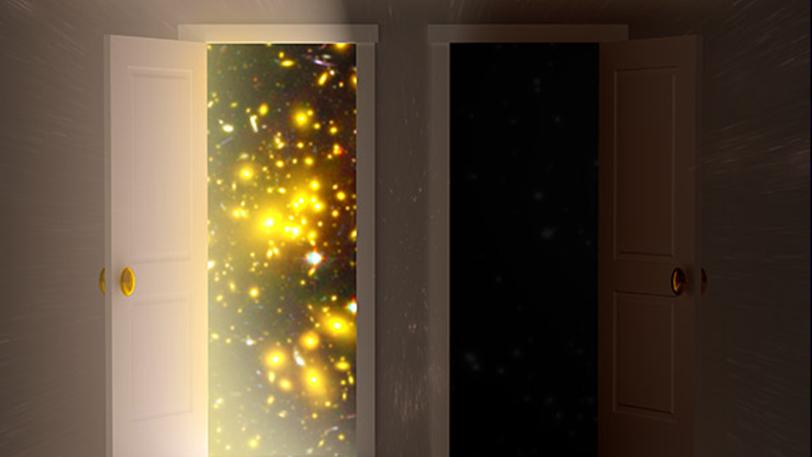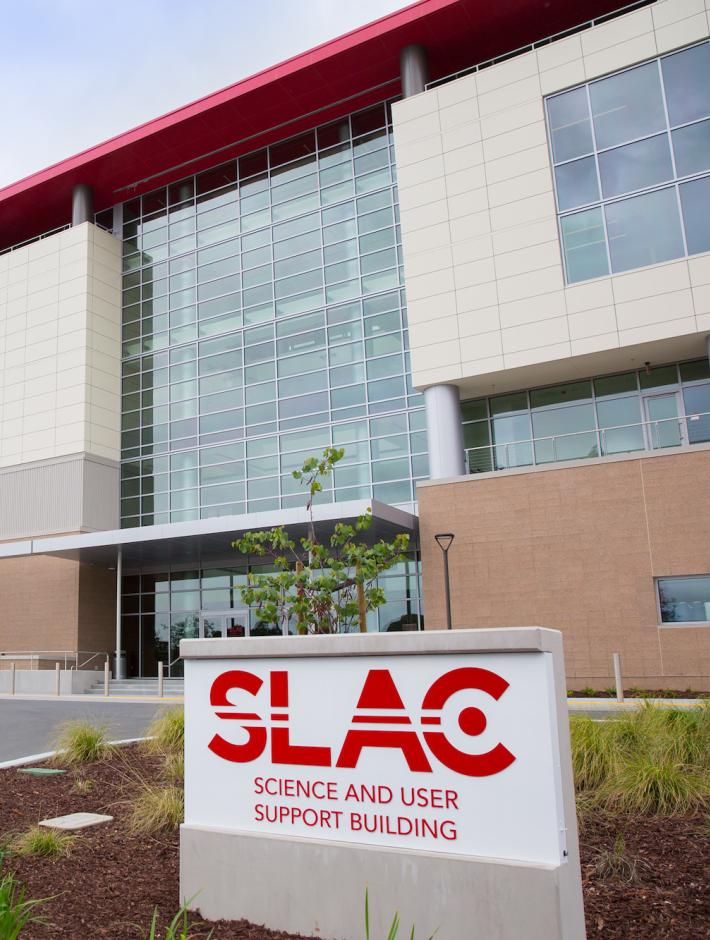The distribution of galaxies in the universe is patchy. Galaxies are bound together in clusters made of stars, hot gas and invisible dark matter. These galaxy clusters are part of a cosmic web of filaments, nodes and empty voids that has been building up over 13 billion years. How do we observe this structure, and how do we use gravitational lensing and satellite X-ray observations to measure its mass? How do galaxy clusters trace the past expansion of the universe and reveal our future? This lecture highlights data from the Dark Energy Survey, today’s largest cosmic survey, to answer these questions.
Galaxy Clusters and the Life and Death of the Universe
Presented by Eli Rykoff
About Eli Rykoff
SLAC Research Scientist Eli Rykoff has been weighing the universe for over a decade. He received his PhD from the University of Michigan in 2005, where he built a worldwide network of automated telescopes for following gamma-ray bursts, the most energetic explosions in the universe. After graduating, he transitioned to studying galaxy clusters, which evolve over billions of years rather than fractions of seconds, and did postdoctoral research at the University of California, Santa Barbara and Lawrence Berkeley National Laboratory. Rykoff moved to SLAC in 2012, where he works on galaxy cluster finding and other studies for the Dark Energy Survey and the upcoming Large Synoptic Survey Telescope. He also develops educational astronomy apps for the iPhone and iPad, including CosmoCalc, a full-featured cosmological calculator, and GravLens3, a gravitational lens simulator.
Galaxy Clusters and the Life and Death of the Universe
Presented by Eli Rykoff

Galaxy Clusters and the Life and Death of the Universe
Public lecture presented by Eli Rykoff
SLAC National Accelerator Laboratory
11:30 a.m.–12:30 p.m. PST

Coming to SLAC
Free admission
Registration may be required.
Identification required
Adults are required to bring a photo ID to enter the SLAC campus.
Limited seating
Please arrive early to join the event on time.
Free parking
SLAC offers free parking in our visitor parking lot.
Accessibility
SLAC facilities meet American Disability Act requirements for accessibility. If you need assistance, please notify our security officers as you enter SLAC’s main gate, and they will direct you to a parking area and assist or escort you to the auditorium.
Getting here
SLAC is located at 2575 Sand Hill Road, Menlo Park, California, 94025. Please visit our Maps and directions page for driving directions.
If you have specific questions or concerns about attending a public lecture at SLAC, please contact us.